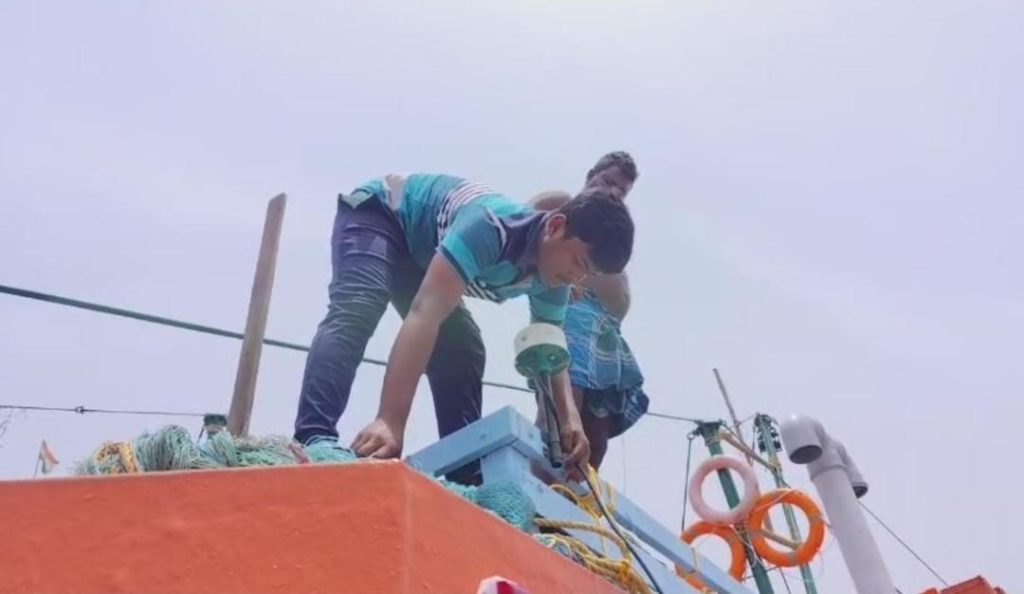
ISRO’s Transponder Technology Protecting West Bengal’s Fishermen
The Indian Space Research Organisation (ISRO) has made a significant contribution to the safety of West Bengal’s fishermen with the installation of its Satellite-Based Maritime Safety Assistant System, or Transponder, in 300 trawlers. This cutting-edge technology has brought a revolution in communication, location tracking, and emergency response in the treacherous waters of the Bay of Bengal and the Indian Ocean.
Deep-sea fishing is a lucrative industry in West Bengal, with thousands of fishermen venturing out into the open sea to catch fish, shrimp, and other marine products. However, the profession is fraught with risks, including encounters with rogue waves, oil spills, and pirate attacks. The lack of effective communication and location tracking systems has made it difficult for fishermen to respond quickly in case of emergencies, leading to a high number of fatalities and missing persons.
To address this issue, ISRO has developed the Transponder technology, which uses a satellite-based system to track the location of trawlers and provide real-time information to rescue teams in case of emergencies. The device is installed on board the trawlers, which are then equipped with a GPS-based tracking system and a satellite communication system.
The Transponder technology has several features that make it an invaluable tool for the fishermen. Firstly, it enables real-time tracking of the trawlers, allowing rescue teams to locate them quickly in case of an emergency. Secondly, it provides a communication link between the trawlers and the shore-based stations, enabling fishermen to send distress signals and receive important information in real-time. Finally, the device is equipped with a built-in emergency response system that can alert rescue teams in case of an emergency.
The installation of the Transponder technology has had a significant impact on the fishing industry in West Bengal. According to ISRO officials, the device has increased the chances of rescue in emergency situations by over 90%. Moreover, the technology has also reduced the number of missing persons, as rescue teams can now locate the trawlers quickly and respond in time.
The Transponder technology is not only a game-changer for the fishing industry but also a testament to ISRO’s commitment to using space technology for the betterment of society. By developing a technology that can save lives and property, ISRO has demonstrated its ability to use space technology for social good.
In addition to the Transponder technology, ISRO has also developed several other space-based applications that can benefit the fishing industry. For example, the agency has developed a fishery monitoring system that uses satellite imaging to track fishing activity and monitor the health of fish stocks. This system can help fishermen to catch fish more sustainably and reduce the risk of overfishing.
ISRO has also developed a system for monitoring ocean currents and weather patterns, which can help fishermen to navigate safely and avoid hazardous weather conditions. The agency has also developed a system for monitoring oil spills and other marine pollution, which can help to reduce the impact of pollution on the marine ecosystem.
The installation of the Transponder technology in West Bengal’s trawlers is a significant step forward in the development of satellite-based maritime safety systems. This technology has the potential to be replicated in other parts of the country, and ISRO is working to develop similar systems for other regions.
The success of the Transponder technology in West Bengal is a testament to the power of space technology to improve the lives of people. By developing innovative solutions that can benefit society, ISRO is demonstrating its commitment to using space technology for the betterment of humanity.
Source:
https://thecsrjournal.in/isro-transponder-technology-brings-safety-revolution-west-bengal-fishermen/




